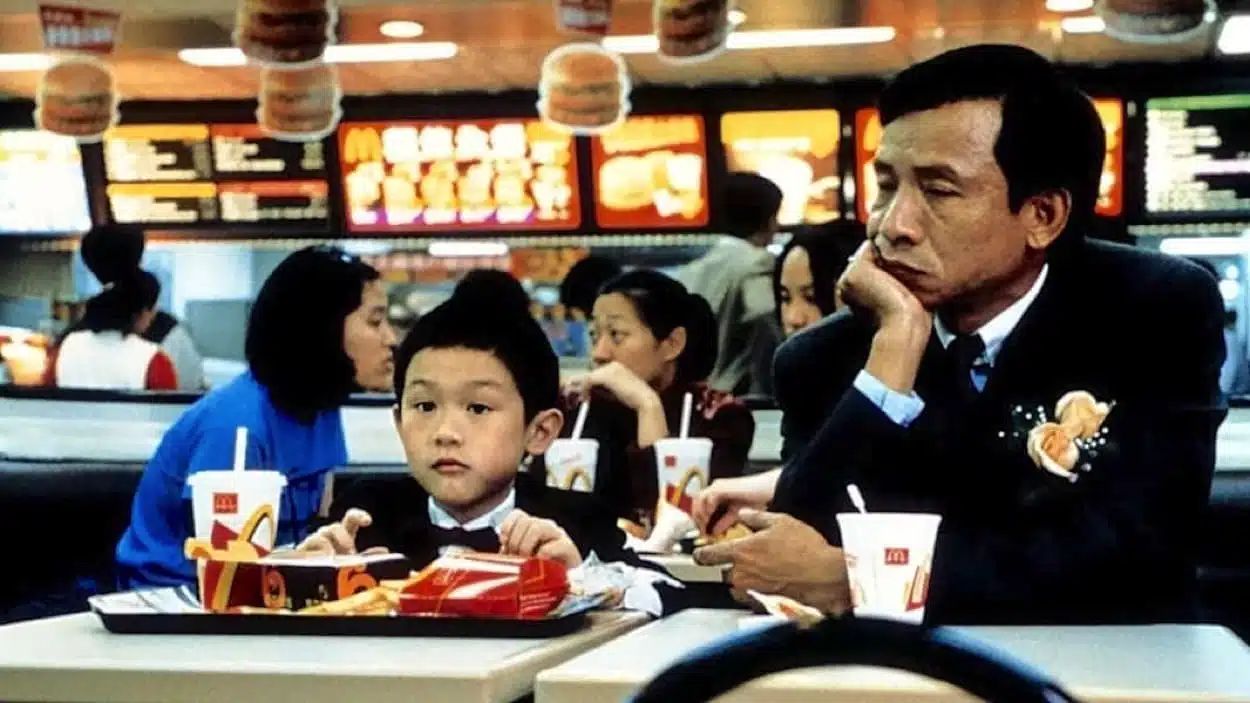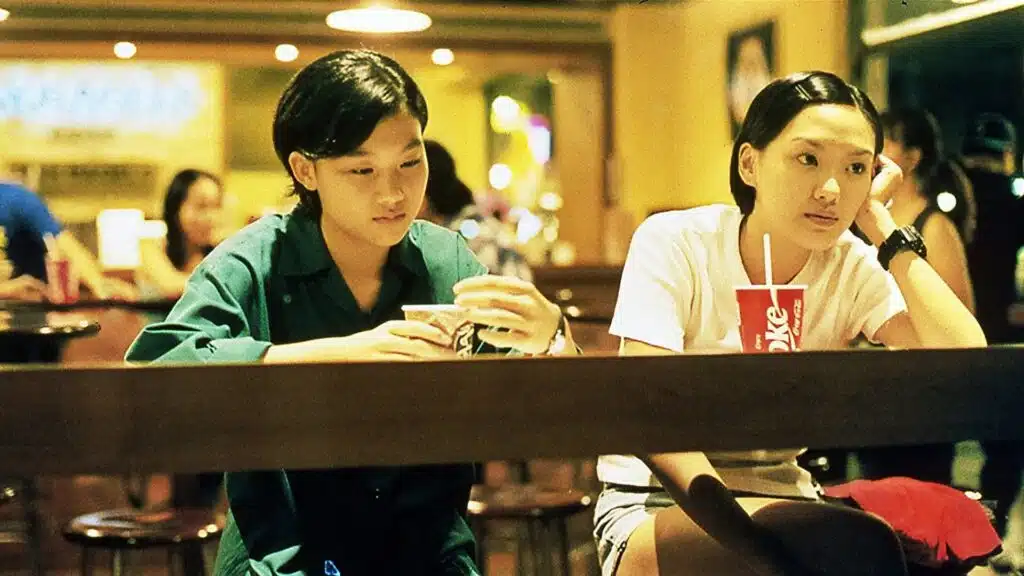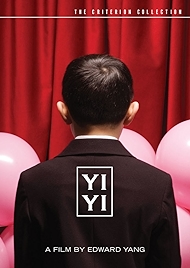Yi Yi was the last feature film Edward Yang made. He died in 2007, of cancer of the colon, seven years after this, his most popular, most successful, most widely praised film, which is itself, appropriately, all about transitions from one life phase to another.
Yang was one of the key players in the Taiwanese New Wave, along with Hou Hsiao-hsien and Tsai Ming-liang, but made films very much for himself. Most of them barely got any exposure at home or abroad and Yi Yi wasn’t even released in Taiwan until 2017. Now it’s often touted as one of the major cinematic events of the 21st century.
One Wedding and a Funeral, it could be called, since it kicks off with one and ends with another. In between it’s the story of the travails of the Jian family, a Taiwanese clan living in Taipei and consisting of dad NJ (Wu Nien-jen), mum Min-Min (Elaine Jin), daughter Ting-Ting (Kelly Lee) and son Yang-Yang (Jonathan Chang).
NJ is employed by a company on the skids and spends the movie trying to engineer it towards salvation, through a deal with a Japanese software guy. Mum is largely absent, a necessary plot device because sympathy needs to stay with NJ, who meets an old flame early on and embarks with her on another desperate bid for salvation – for his soul. As for the kids, Ting-Ting is finding out about young love, in a complicated relationship with someone else’s guy, who is, if she’d only see it, a complete waste of time. And young Yang-Yang is a shrimp of a kid with a wildly inquisitive intelligence discovering that he’s the tall poppy who’s going to spend life being pressured into conforming.
It’s a film all about trouble of various sorts, with Min-Min’s mother in the background the entire time in a coma that looks terminal, plus neighbours who fight, teachers who bawl, colleagues at odds with each other. But considering the subject matter, it’s a strangely restful affair. Yang’s static camera and long takes are part of the reason why, but so is the way the actors perform. No one in a rush, performances relaxed and natural, which is particularly remarkable when you consider that neither Kelly Lee and Jonathan Chang (who was only eight at the time) had acted before.
Yang drops us straight into the action at the opening wedding and it takes a while to get oriented. It looks at first like it might be a story about the bride and groom – she’s heavily pregnant and it’s openly being suggested that she’s trapped him into marriage. But gradually, almost by stealth, Yang swings us towards this unassuming family, each of whom (the mother excepted) spend the duration heading for tipping points in their lives. Some transitions are inevitable and just have to be accepted; others are negotiable and can be tackled in a variety of ways. Should NJ rekindle that old flame with Sherry (Ke Suyun)? Should Ting-Ting accept the overtures of the useless Fatty and go out with him, when she’s meant to be the ambassador for her friend? Where will it lead? What do we or can we know?
It’s the character of little Yang-Yang who sums it all up. Having picked up a camera, he’s taking pictures of the backs of people’s heads, in an attempt to show them the bits of life they cannot see themselves.
There is a soap opera aspect to it. We feel as if we’re in a story that’s already been running for a while when we join it, and there’s a loose style, as if it might run for ever. And at getting on for nearly three hours there’s plenty of it. But that’s to miss the structure, which clearly is of the beginning-middle-end variety, and when the full stop comes, with the sensational Chang bringing things to a close with a speech and a look to jerk a tear, it feels entirely right.
Yi Yi – Watch it/buy it at Amazon
I am an Amazon affiliate
© Steve Morrissey 2023


